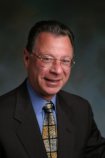ALCOHOL AND FREE
SPEECH!
I am quite sure that
an article can be authored demonstrating the relationship between alcohol and
free speech; however, this will not be that article! These topics are simply the subjects of
separate appeals in California.
ALCOHOL
During one evening in
April 2000, Leonardo’s, an Oxnard, California, bar, dance club and restaurant
entertained between 400 and 500 patrons for a party. Sophia, age 15, and Patricia, age 18,
entered Leonardo’s during the late evening hours, in an intoxicated
condition.
In order to provide
security for the party, the owners of Leonardo’s engaged an outside security
firm to provide personnel for the evening.
One of the outside security guards and the Leonardo’s bartender broke up
a fight between Sophia and another patron.
Thereafter, Sophia announced that she was leaving the party. Sophia was bleeding, but declined
medical assistance.
In the parking lot,
Sophia and Patricia appeared to be very angry when they walked from the back
door of the bar to their automobile.
The guard offered to summon an ambulance, but Sophia refused. Patricia, according to the guard, used
“bad language” to deter him from calling the police, and stated that she would
take Sophia to a hospital. The
guard assisted Sophia into Patricia’s automobile and with her seat belt. Patricia left “burning rubber, very
fast.”
Patricia drove
northbound on the 101 Freeway in excess of 100 miles per hour and collided with
a light pole. The automobile rolled
down an embankment, struck a tree and a chainlink fence, and overturned. Sophia was ejected. The girls died immediately from head and
chest injuries. Patricia’s blood
alcohol level was .21% at the time.
The heirs asserted
that the outside security guards had breached their duty of care to Sophia and
Patricia by not acting as “reasonable security guards under the
circumstances.” The court rejected
the argument with dispatch, noting:
“Although Leonardo’s
may have employed [the outside security guards] in part to insure that minors
were not consuming alcoholic beverages, that job responsibility is not
equivalent to a legal duty of care to underage patrons to prevent them from
drinking or driving while intoxicated.”
In support of this
conclusion, the court observed that in another similar situation, police
officers who were investigating a party at which minors were consuming alcoholic
beverages had no duty to prevent intoxicated minors from
driving.
FREE
SPEECH
One evening in April
1996, David appeared at a meeting of his local school board. Members of the public could speak to the
board and were afforded the use of a microphone located in front of the board
members.
Before the meeting
which gave rise to litigation, David had attended several other board meetings
expressing concern about trash left by high school students in the neighborhood
around the campus. At one meeting,
he brought a bag of rubbish and lifted the bag in the air as he discussed the
trash problem. He asserted that the
bag contained drug paraphernalia and alcohol containers.
At the meeting in
question, David brought five 13-gallon bags of trash and placed them in the back
of the room before the meeting commenced.
He had apparently been collecting the garbage over a period of several
weeks.
During the meeting,
David addressed the board and after speaking about seismic retrofitting and
traffic improvements related to the building of a new middle school, he told the
board he wanted to discuss the subject of
trash.
“He said, ‘Excuse me
one minute while I bring up some trash.’
He went to the back of the room and retrieved two or three bags, gloves
and plastic tarp.”
The room in which the
meeting was held was used as the school cafeteria and student assembly room and
also for an after-school childcare program.
David advised the
board that he intended to underscore his point and untied the bags of trash and
dumped the garbage upon the tarp.
Because the tarp has not been carefully spread, some of the trash spilled
onto the floor.
David was thereafter
arrested for disturbing a public meeting and asserted, as a defense, that his
actions constituted speech protected by the First
Amendment.
The court, in
rejecting David’s claim, provided an interesting discussion regarding the
subject of free speech.
“Audience activities,
such as heckling, interrupting, harsh questioning, and booing, even though
they may be impolite and
discourteous, can nonetheless advance the goals of the First Amendment. For many citizens such participation in
public meetings, whether supportive or critical of the speaker, may constitute
the only manner in which they can express their views to a large number of
people; the Constitution does not require that the effective expression of ideas
be restricted to rigid and predetermined
patterns.”
The court also noted
that the Constitution affords some measure of protection to all those present at
a meeting, including speakers, officials, and the audience. As an illustration, the court notes
that, “Freedom of everyone to talk at once can destroy the right of anyone
effectively to talk at all.” A
legitimate concern is thus retained by the state to prohibit disturbances,
although those disturbances might collide with safeguarding the right of free
speech provided under the First Amendment.
The moral of the story? Be
careful in selecting the bar in which you elect to stop for a nightcap, and
leave your trash in the dumpster!
